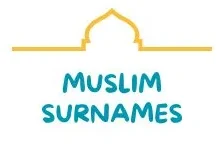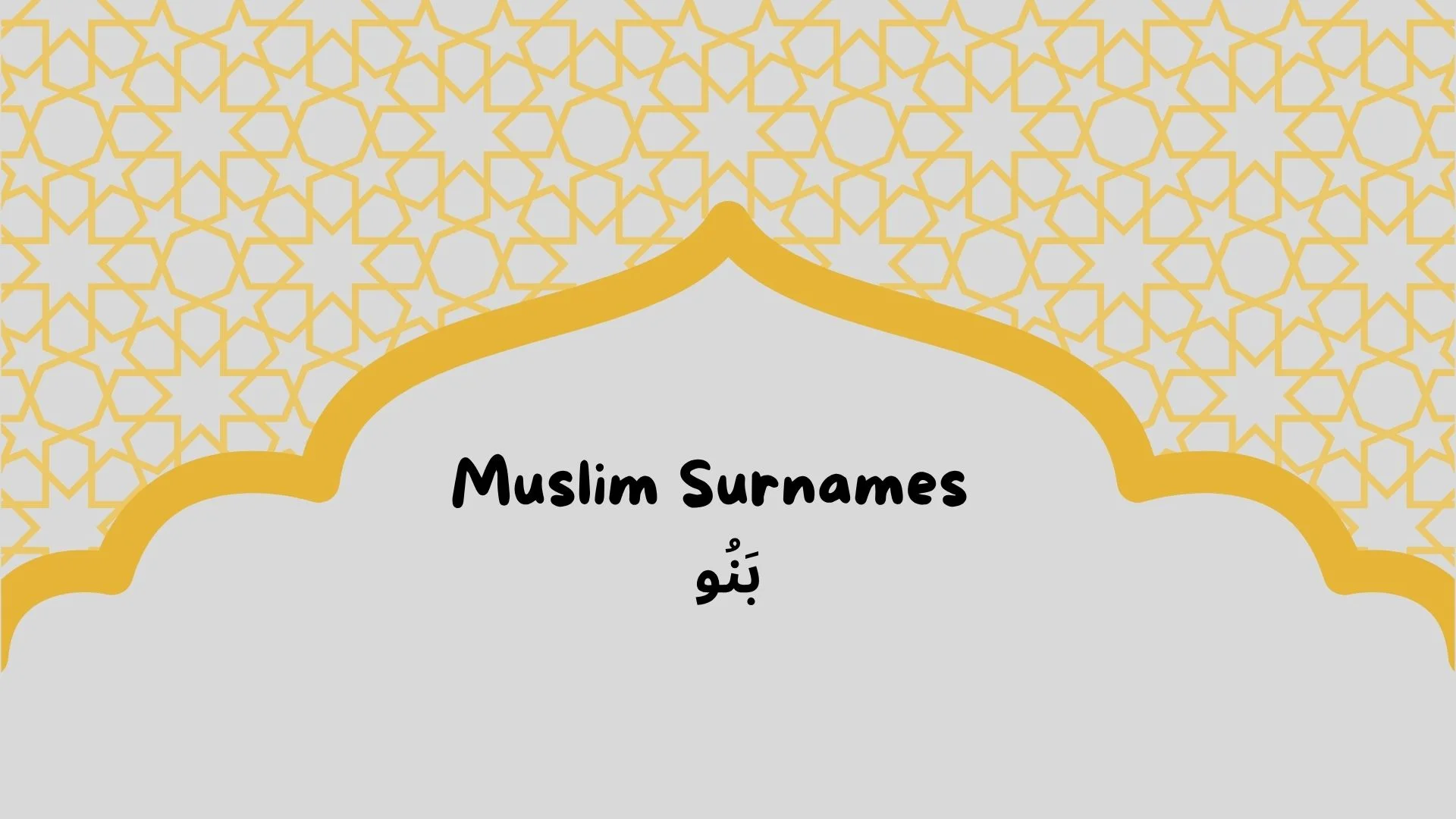Muslim Surnames with the Prefix Banu
In classical Arabic culture, lineage and tribal affiliations played a central role in personal and social identity. One commonly seen prefix in many Arabic tribal or family names is “Banu-” (بَنُو), which translates to “Sons of” or “Clan of”. This prefix is used to denote a descendant group stemming from a common male ancestor, usually signifying a tribe, sub-tribe, or extended family.
Meaning and Usage of Prefix Banu-
The term “Banu-” comes from the Arabic root ب-ن-ى (B-N-Y), related to building or constructing, but in this context, it stems from “Ibn” (ابن), meaning “son of.” While “Ibn” refers to an individual son, “Banu” is its plural form and refers collectively to the sons or descendants of a particular ancestor.
In tribal contexts, “Banu-” is always followed by the name of the ancestor. For example, “Banu Hashim” means “Clan of Hashim”, referring to the descendants of Hashim, the great-grandfather of Prophet Muhammad ﷺ.
Cultural Significance
Using “Banu-” in names was common among the Arabs of pre-Islamic and early Islamic periods. It helped identify one’s tribal roots, which were essential for social organization, alliances, and heritage. Many of these tribal names are still preserved today and recognized across the Muslim world.
Examples of the Muslim Surnames with the Prefix Banu

| Tribe Name | Arabic | Meaning |
|---|---|---|
| Banu Hashim | بَنُو هَاشِم | Clan of Hashim |
| Banu Tamim | بَنُو تَمِيم | Clan of Tamim |
| Banu Umayyah | بَنُو أُمَيَّة | Clan of Umayyah |
| Banu Aws | بَنُو أَوْس | Clan of Aws |
| Banu Khazraj | بَنُو خَزْرَج | Clan of Khazraj |
| Banu Quraysh | بَنُو قُرَيْش | Clan of Quraysh |
| Banu Abbas | بَنُو ٱلْعَبَّاس | Clan of al-‘Abbas |
| Banu Thaqif | بَنُو ثَقِيف | Clan of Thaqif |
Notable Facts About Prefix Banu
- Banu Hashim: The Prophet Muhammad ﷺ belonged to this noble tribe. It was highly respected among the Quraysh.
- Banu Tamim: Known for their eloquence and courage; many scholars and poets arose from this tribe.
- Banu Umayyah: The powerful family that established the Umayyad Caliphate, ruling from Damascus.
- Banu Aws & Banu Khazraj: Two key tribes of Madinah that supported the Prophet ﷺ and were collectively called the Ansar (Helpers).
- Banu Quraysh: The dominant tribe of Makkah, including several clans such as Banu Hashim and Banu Umayyah.
- Banu Abbas: Descendants of al-‘Abbas, the Prophet’s ﷺ uncle. They founded the Abbasid Caliphate centered in Baghdad.
- Banu Thaqif: A tribe from the city of Ta’if, known for their role in early Islamic interactions with the Prophet ﷺ.
Muslim Surnames with the Prefix Banu
The prefix “Banu-” is more than just a naming convention—it is a window into the lineage, history, and legacy of Arab tribes and families. Understanding these tribal affiliations helps one appreciate the deep roots of Arab-Islamic identity and history. Today, while tribal systems are not as central in daily life, these names carry historical pride and cultural heritage.
Also Read: Banu Makhzum, The Warrior Clan of Mecca


1 thought on “Understanding “Banu-” in Arabic Names: Meaning and Examples”